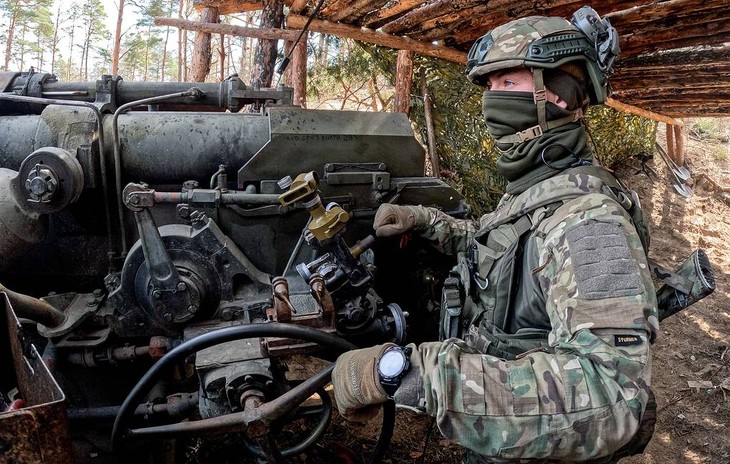(VOVWORLD) - Following a 30-day ceasefire agreement on energy infrastructure, the US, Russia, and Ukraine on Tuesday announced a preliminary deal to end hostilities in the Black Sea. However, ongoing challenges have cast doubt on its feasibility and implementation.
 Russian soldiers on duty. (Photo: TASS) Russian soldiers on duty. (Photo: TASS) |
The US delegation said Tuesday that after three days of separate negotiations with Russian and Ukrainian delegations in Riyadh, Saudi Arabia, Russia and Ukraine have agreed to ensure maritime safety, refrain from using force, and prevent the use of commercial vessels for military purposes in the Black Sea.
Next steps
The agreement to end hostilities in the Black Sea marks another positive step in US forts to end the Russia-Ukraine conflict. Following the preliminary 30-day ceasefire agreement on energy infrastructure, the Black Sea agreement fulfills two thirds of the goal of a comprehensive ceasefire on land, sea, and air.
This agreement could pave the way to reviving the Black Sea Grain Initiative, which was originally agreed in July 2022, just a few months after the conflict erupted, but collapsed a year later. Reviving the Initiative would reopen a crucial maritime route for Russian and Ukrainian agricultural and fertilizer exports, with significant global benefits.
“Reaching an agreement on freedom of navigation in the Black Sea to ensure the protection of civilian vessels and port infrastructure will be a crucial contribution to the global food security and supply chains, reflecting the importance of trade routes from both Ukraine and the Russian Federation to global markets,” UN Secretary-General spokesperson Stéphane Dujarric said.
The key task now is swift implementation of the Black Sea agreement. Russian Foreign Minister Sergey Lavrov said the main issue is lifting sanctions on Russia, particularly in the agricultural sector, and securing US assurances that Ukraine will adhere to its commitments.
Meanwhile, Ukraine and its European allies insist that Russia should demonstrate goodwill by accepting the agreement without preconditions. US Secretary of State Marco Rubio acknowledged that this remains a major obstacle and that further discussions with Russia are necessary before presenting any proposals to President Donald Trump.
Rubio said the most important thing is that all parties are engaging in serious negotiations. “I think it's a good thing that we have both the Ukrainians and the Russians talking about cease fires, be they energy or be they potentially in the Black Sea.”
The EU’s tough stance
Analysts say one of the biggest challenges to implementing the ceasefire is the growing divergence between the US and Europe, Ukraine’s allies. While the US has adopted a more dialogue-driven approach toward Russia, European nations have recently taken a harder stance.
Over the past week, the EU, the UK, and non-European partners Australia and Canada held three high-level meetings focused on continued military assistance to Ukraine and a framework for a "coalition of the willing" to send peacekeeping forces to Ukraine once a comprehensive and lasting ceasefire is reached. At the Ukraine Aid Summit in Paris on Thursday, the European leaders agreed not to consider lifting sanctions on Russia anytime soon, and to even increase their pressure.
“Stopping sanctions at this time would be a serious mistake. The sanctions must continue and be increased. Europe and the US must take a clear stand together. It makes no sense at all to end the sanctions until peace has actually been achieved, and unfortunately we are still a long way from that,” German Chancellor Olaf Scholz said.
Europe's stance presents a significant obstacle to the US-Russia Black Sea negotiations. Secretary Rubio said Washington can do nothing with sanctions imposed by other countries.
Meanwhile, Russia insists that the US help restore Russia’s access to global markets for agricultural and fertilizer exports and reconnect Rosselkhozbank to the SWIFT international payment system.
So far, neither side has shown signs of compromise, leaving the swift implementation of the recently agreed ceasefires in doubt.